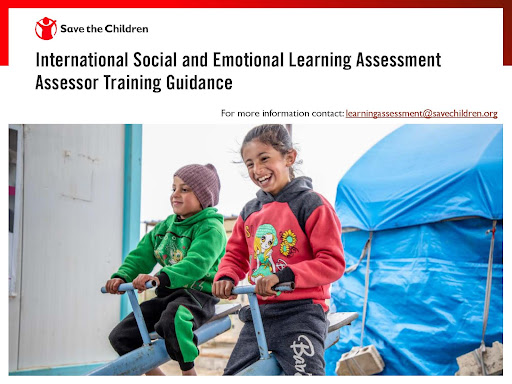Using Measurement Library tools to inform programming: A case study from Right to Play in Burundi and Tanzania
Currently, there are over 25 peer-evaluated, high quality measurement tool packages on the Measurement Library. With hundreds of downloads for many of the tools included in the Library, there is a story to tell for each one.

In Burundi and Tanzania, Right to Play is using the International Social and Emotional Learning Assessment (ISELA), a validated measurement tool developed by Save the Children. Right to Play selected ISELA because its staff knew that the tool could accurately collect data and generate high quality evidence of children's social-emotional skills development.
Right to Play commissioned an external research institution to conduct a baseline study for the My Education, My Future project, implemented in partnership with Norwegian Refugee Council and funded by the Government of Canada through Global Affairs Canada, to respond to the Burundian refugee crisis and support Burundian refugee and returnee communities in Burundi and Tanzania. The project aims to improve learning outcomes for children, especially girls, in grades 1-6 through increasing access to education, and improving provision of protective, inclusive and gender-responsive play-based education for children, including children with disabilities.
The use of ISELA was powerful.
As a quantitative measure in part of a larger mixed methods study, Right to Play used ISELA to assess children’s self concept, stress management, relationship skills, and conflict resolution. The results are informing programming decisions for the rest of the project. This includes the need to further develop programs that help improve children’s general problem solving and decision making skills, especially girls and children with disabilities.
Right to Play is putting the results of the baseline study into action by working with teachers and coaches to refine the kinds of life skills activities that are a part of the program, including specific games and other fun activities that support problem solving and decision making skills. The organization looks forward to using ISELA as part of the end-line study of the project to learn about the ways in which these evidence-informed actions will improve learning outcomes for children that the My Education, My Future project supports.
Visit the Measurement Library to learn more about ISELA and other high quality measurement tools currently available.

Stephen Richardson is a senior consultant with 15+ years of experience in program design and project management including contexts in acute emergencies and protracted crises. Over his career, he has worked for the Norwegian Refugee Council, the International Rescue Committee, Mercy Corps, Save the Children, Creative Associates, UNRWA, USAID, GIZ, and MTV World. Stephen has a master's degree in international education from the University of Massachusetts Amherst.



